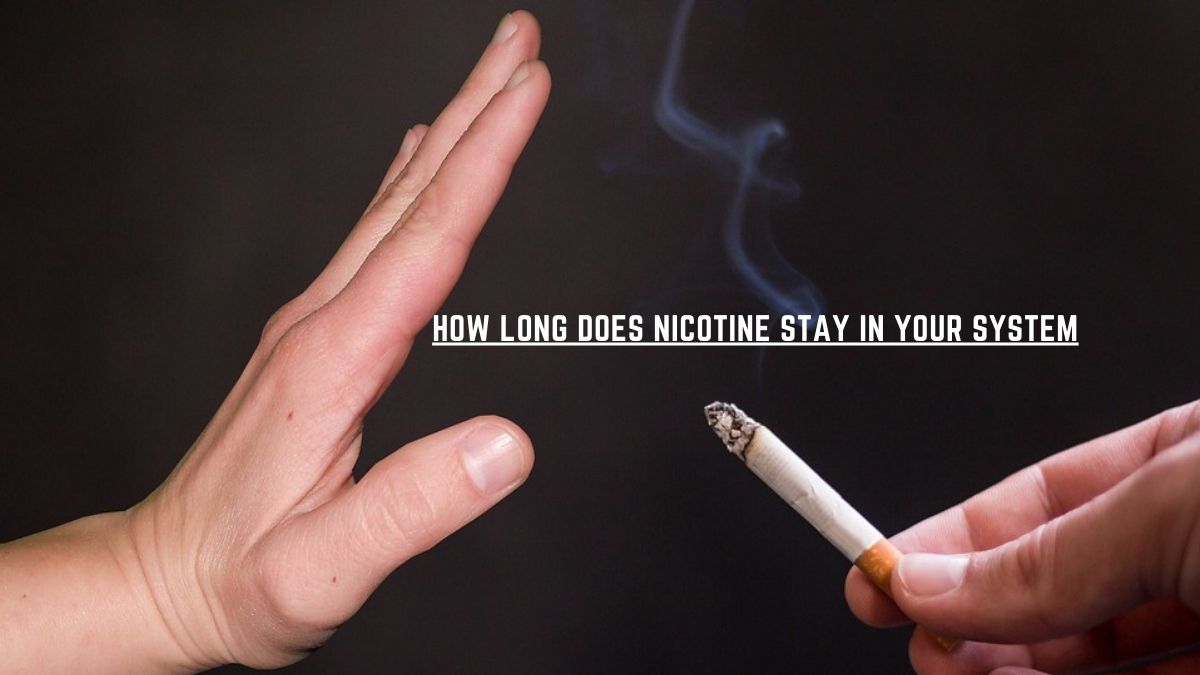The nicotine in cigarettes and other tobacco products can stay in your system for a while after you stop using them. The length of time nicotine remains in the body varies depending on a number of factors, such as how often and how heavily someone uses tobacco products, their metabolism, and their own unique biology. In spite of nicotine’s short half-life, its metabolites can often be detected for much longer.
Here’s a general timeline of nicotine’s presence in different parts of your body:
- Bloodstream: Within 10 minutes of smoking or using other tobacco products, the highest quantities of nicotine are already present in the blood. It takes about 2 hours for half of the nicotine in your bloodstream to be flushed out of your system.
- Urine: After smoking for the first time, your urine will still contain traces of nicotine and its metabolites for up to 48 hours. The length of time can change based on variables like how often and how heavily one smokes.
- Saliva: Saliva nicotine detection normally lasts between 24 and 72 hours following cigarette use, which is shorter than urine detection. The detection window is frequently used in testing of oral fluid.
- Hair: For far longer, perhaps even months, hair follicles can store nicotine. It’s worth noting that hair tests aren’t nearly as common as urine or saliva testing when it comes to detecting nicotine use.
Please keep in mind that these are only rough estimates that may or may not hold true for you. The extent to which nicotine is detectable in your system may also depend on other circumstances, such as the sensitivity of the testing method employed.
The best strategy to rid your body of nicotine is to quit smoking. Nicotine and its metabolites are gradually eliminated from the body as smoking cessation progresses. The damage to your body from smoking will gradually heal, and your need for nicotine will decrease along with it.
Although nicotine levels in the blood may decrease quickly after cessation, the combination of nicotine’s addictive properties and the nicotine habit might be difficult to break. Your odds of successfully stopping smoking improve dramatically if you get help from healthcare professionals, support groups, or smoking cessation programs.
Metabolism of Nicotine
When you take nicotine into your body, it gets metabolized, meaning it is broken down further into smaller pieces called metabolites. Nicotine is metabolized primarily by cytochrome P450 2A6 (CYP2A6), which produces cotinine and trans-3′-hydroxycotinine (3HC), among other metabolites. The most popular biomarker for nicotine exposure is cotinine.
Factors Affecting Nicotine Clearance
- Individual Differences: The rate at which nicotine is metabolized and eliminated from the body varies from person to person due to individual differences in the CYP2A6 enzyme. Individuals can be classified as “fast metabolizers,” meaning they break down nicotine quickly, or “slow metabolizers,” meaning the drug and its metabolites linger in the system for a longer period of time.
- Frequency and Intensity of Tobacco Use: Nicotine and its metabolites accumulate in the body with increased frequency and intensity of smoking and tobacco usage. Longer detection times may be the result of nicotine and its metabolites building up in the bodies of chronic smokers.
- Other Substances: Some antidepressants and antipsychotics, for example, can modify nicotine’s elimination from the body by influencing its metabolism. Nicotine metabolism can also be affected by other chemicals, such as alcohol and caffeine, the precise nature of which is currently being investigated.
- Hydration and Kidney Function: In order to aid in the removal of nicotine and its metabolites, it is important to drink enough of water and keep your kidneys healthy. Clearing out of your system quicker is possible by drinking lots of water and generally taking care of yourself.
- Testing Methods: The detection window can also be affected by the specific nicotine detection test employed. While blood tests are best for instantaneous detection, other methods such as testing urine, saliva, or hair can reveal information about nicotine use over longer time periods.
However, the psychological and behavioral impacts of nicotine addiction can last long after the physical effects have worn off. Nicotine addiction is particularly difficult to overcome because it involves a combination of physical and psychological reliance. Long after nicotine has left the body, the body may still experience withdrawal symptoms, cravings, and behavioral links with smoking.
There are various health benefits to quitting smoking or using tobacco products, regardless of how long nicotine stays in your system. If you want to stop smoking, there are several resources available to you, including professional aid, support groups, counseling, and nicotine replacement therapy.
Keep in mind that this is just a high-level summary, and there may be some variances depending on the reader. When looking for personalized counsel and direction on nicotine use and cessation, it is best to speak with a healthcare expert.











